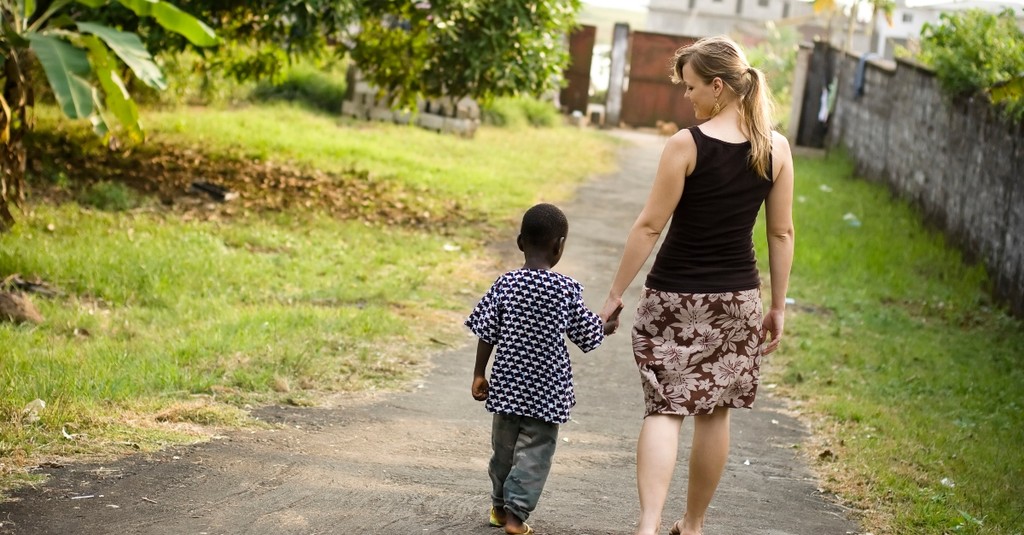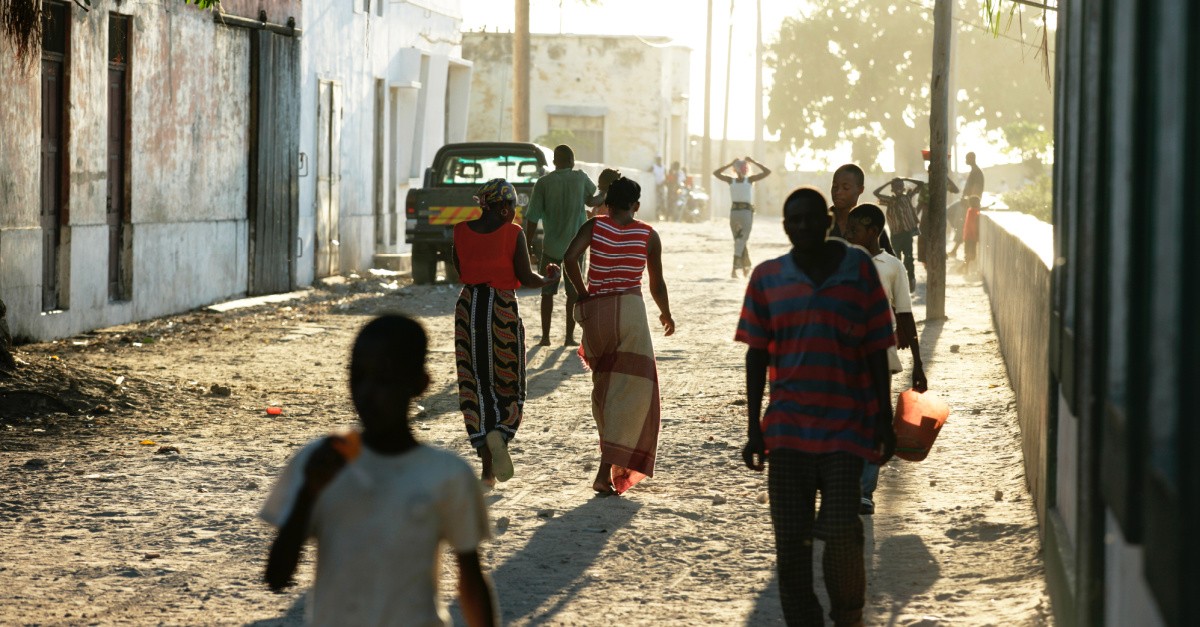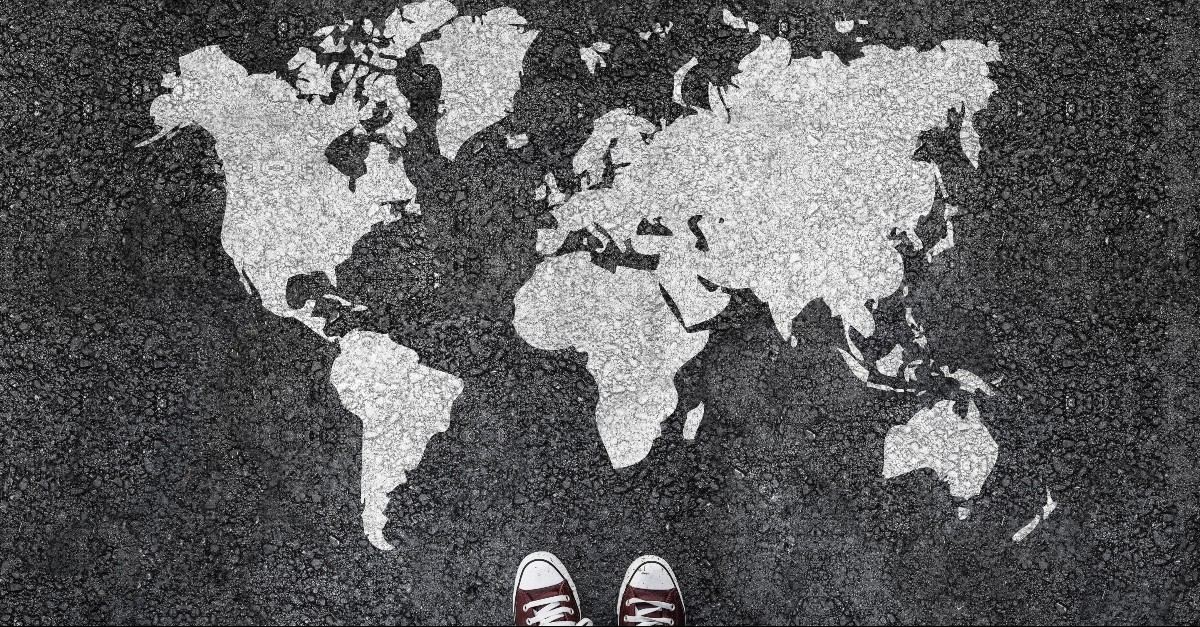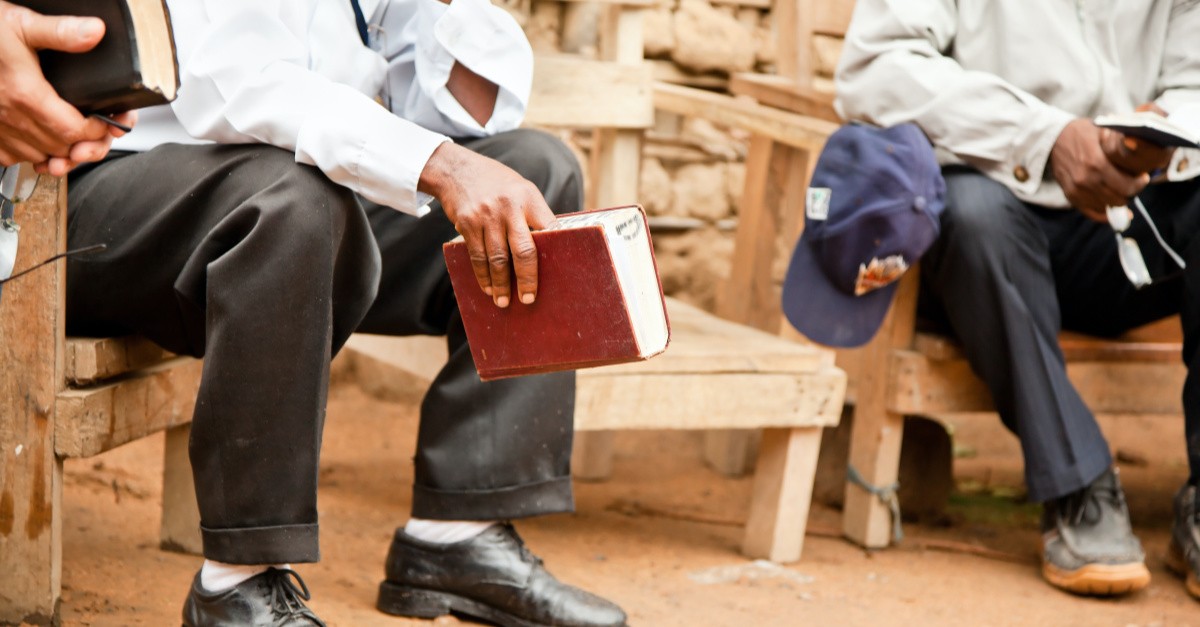
I recently returned from my favorite week of the year. It wasn’t a cruise or an exotic destination, although I love those kinds of weeks. Instead, I spent 12 hours a day on my feet in 96-degree heat, loving on teenage girls who have been rescued from abusive situations at home, on the street, or in the brothel. On Monday, the girls dared my team to impress them; on Friday, they cried and hugged us goodbye.
Mission trips, more than any other spiritual act of service, transform my heart and my perspective about absolutely everything. My personal faith and my love for Jesus are rarely stronger than when I’m serving the poor or marginalized in a foreign country. It’s not the feel-good endorphins kicking in because I’m doing a good deed.
Missions work wrecks me emotionally, spiritually, mentally, and physically. When I come home, I’m unfit for life as I normally live it.
A mission trip has unique compassion-grooming characteristics. Much like Christian sleep-away camp for kids, going on a mission trip extricates you from the chaos and materialism of your normal life and airdrops you into a place where none of your daily pressures matter anymore. You become vulnerable to the Spirit’s prompting. You hear His voice, and you feel His love.
Here are some reasons a mission trip can build your compassion for others:
Photo Credit: ©Getty Images/himarkley

1. You learn how to empathize when you see the suffering of others.
Empathy is different from sympathy. Empathy means to feel the emotions of someone’s pain, but sympathy means you feel bad that someone is in pain. Empathy does more than mail cards and deliver casseroles (both nice actions). Empathy sits in the darkness and holds the grieving person; am empath cries with someone until the sobbing subsides. Unless you feel some of the grief, pain, joy, worry, and hopelessness of others in the world, you won’t truly understand them. A mission trip is designed to put you in contact with people who need empathy and understanding. It’s frankly impossible to get away from, so you’ll learn how empathy works.
Photo Credit: © Getty Images/kieferpix

2. You have to deny yourself.
You learn that you can live on beans and rice. That you won’t die from diarrhea. That you can hug, shake hands, and be kissed by strangers on both your cheeks and still be okay (and you will wait until the van door closes before you pull out the hand sanitizer because you won’t want to offend them). Denying yourself means putting others first. Honestly, we’re pretty good at arranging our American lives, so we don’t have to deny ourselves anything to help other people. We just add on kind activities once in a while when it’s convenient for our schedules. But on a mission trip, you might have to eat food you don’t like, be eternally hot and tired, or lead activities you’ve never even done before. These are the critical moments where you give up your rights and preferences. Whenever you stop being a consumer, you realize that you need less and you deserve less. Then, you can clear space for more important perspectives and goals.
Remember, denying yourself is a spiritual directive from Jesus: “Whoever wants to be my disciple must deny themselves and take up their cross daily and follow me” (Luke 9:23). You cannot participate in sharing the gospel without denying pride, comfort, and pleasure. When you can learn to deny yourself, you will have the space to obey the Holy Spirit’s prompting. You will cease to look out for your own interests and find the humility to see someone else as equally deserving of God’s grace (Philippians 2:3-4).
Photo Credit: ©GettyImages/Kieferpix

3. You learn to see people like Jesus sees them.
In Scripture, Jesus was often “moved with compassion” when he surveyed the multitudes following Him all over the Jewish countryside (Matthew 9:36, 14:14, 15:32, 20:24). Even though Jesus was exhausted, He saw throngs of people as individuals who were “lost sheep” in need of a shepherd. Jesus had compassion on them. In other words, Jesus was able to look past their actions and appearance; He saw their anxious hearts and confused minds. He saw how much they needed saving. When you’re willing to place yourself in a position to serve others no matter what that requires of you, it’s easier to feel compassion. You think about souls, not personalities or belief systems.
Photo Credit: ©Getty Images/Oliver Strewe

4. You learn flexibility.
When you work in 24/7 ministry, in a different culture, with people you don’t know well, you become acutely aware that you have no control over anything except your own attitude. A key aspect of successful mission work is adapting to what the locals need and empowering them to do the work of the ministry—to help them how they want to be helped (not how you think they should be helped). When you learn to be flexible to the needs of your team and your ministry recipients, you begin practicing humility and empowering the people you’ve gone to help.
Photo Credit: iStock/Getty Images Plus/kieferpix

5. You learn teamwork.
Mission teams are often composed of team members who were not previously friends and who may have little in common except their interest in the trip. After having led many trips (some filled with friends and some filled with strangers), I find that the most rewarding Spirit-filled trips were the ones where team members were not all close friends before they traveled together. When you do the work of the ministry with people who God has called (rather than the ones you hand-picked), you fully embody the unity of the Church. Real unity comes through diverse individuals with a shared purpose. It’s how the Kingdom of God is designed to work.
A team comprised of humble, flexible members becomes a team that’s patient and gracious to one another, even when they’re tired. They can overlook one another’s idiosyncrasies because they are unified around a single important purpose.
Photo Credit: ©GettyImages/Prostock-Studio

6. You learn to rejoice over spiritual victories rather than physical comforts.
A team’s shared enthusiasm about ministry leads to excitement about transformations, not destinations. Although my teams rejoiced at flushing toilets and air-conditioned hotel rooms, our most precious mission moments happened when we collectively saw a life touched and spiritual change happening. The stories we tell after a trip reverberate with transformations of people healed from shame and children empowered by hope.
Photo Credit: ©GettyImages/Tinnakorn Jorruang

7. You learn to love like Jesus.
This takes practice. We can learn love at home, certainly, but we’re often distracted from practicing sacrificial love when we’re in our controlled environments. On a mission field, you can hold an orphan baby in your arms, encourage a teenage inmate, or rock a weeping woman in your embrace, and all of it feels normal and expedient. Yet somehow, at home, you find more convenient ministries to participate in. You love your friends and ignore your enemies. You serve your families and forget the poor. You don’t love like Jesus every single day because the opportunities for loving the unlovely are hidden by your busy life.
Photo Credit: Eye for Ebony/Unsplash

8. You learn that small amounts of kindness add up to large amounts of impact.
On a mission trip, you can spend a week somewhere, like a Latin American rainforest, an Eastern European ghetto, or an African village; and you’ll take 1000 pictures and go home with fond memories but wonder if your presence there really made a difference. After all, you just gave a few lessons or gave medicine to a few children. But somewhere in the process, you will also feel the impact of the larger work—that your hour teaching a group of women has changed some of them for eternity. You gave out backpacks, clothing, or toiletry kits, but the implications reached farther than an immediate physical need.
Your kindness—your attention to detail—told a child who has never felt loved by anyone that she matters to an American she never met until that moment. And if she matters to that American, then maybe it’s true that she matters to God. Maybe the American’s message is real. Maybe there’s a God who has a better plan for her life after all. When you go, you’re reminded that all your little acts of obedience in life add up to a huge Kingdom harvest!
Photo Credit: ©GettyImages/BiserkaStojanovic

9. You understand the world better.
Nothing prepared my children better for becoming kind, compassionate, and informed adults than taking mission trips. They developed a better understanding of global politics, religion, economics, and culture. They realized that America was not the epicenter of perfect Christianity. They saw the effects of tyranny and materialism. They were wowed by the varied beauty of God’s creation. They became critical thinkers who explored answers to problems of poverty, racism, famine, and crime. They saw the power of the gospel at work and the power of evil warring against it. Instead of raising well-traveled children who can get accepted into prestigious colleges, send your kids around the world to ignite their passion for the gospel of Jesus.
Photo Credit: ©iStock/Getty Images Plus/mirsad sarajlic

10. You invite the world into your world.
Mission work has inspired me to sponsor children and host missionaries. Understanding culture and poverty prepared me to welcome immigrants and teach English as a second language. Missions involved me in changing someone’s world rather than making me feel good because I had donated some money to fund a project. Don’t get me wrong—you should give to missions. That’s a Scriptural principle. But you can give without compassion. Don’t do it! Instead, invite people to live with you (that’s compassion). Foster or adopt children or befriend the homeless (that’s compassion). Visit prisoners or assist addicts (that’s compassion). Radiate authenticity; invite the world home with you. That’s how everyone will know we are Jesus’ disciples (John 13:35).
A mission trip is a non-vacation vacation. It’s an escape from my present reality into the reality God intends for me to see, called the Kingdom of Heaven. So please consider traveling with a mission team to a location that needs God’s love manifested to them. Go with a church or a non-profit. Invest your time and money into a trip with memories that last into eternity.
Traveling on mission, with mission, and for mission combines cultural experience with a compassionate awareness of need: spiritual, social, physical, and mental. This is a Scriptural approach to ministry. Jesus always intended to heal the whole person. Sometimes, he cured someone’s physical ailment before forgiving their sins. Other times, He forgave their sins and then healed their bodies. His goal was both.
Jesus wasn’t shy about his mission. He stated clearly that His purpose was to alleviate suffering and introduce the Kingdom of God. He stated this so clearly, in fact, that his own neighbors tried to push Him off a cliff when he read Isaiah 61:1-2, obviously a prophecy about Himself. Jesus declared, “The Spirit of the Lord is on me, because he has anointed me to proclaim good news to the poor. He has sent me to proclaim freedom for the prisoners and recovery of sight for the blind, to set the oppressed free, to proclaim the year of the Lord’s favor” (Luke 4:18-19). Then Jesus rolled up the scroll, handed it back to the priest and said, “Today this Scripture is fulfilled in your hearing.”
Jesus was not only the self-proclaimed Savior of the world, He was also the self-proclaimed Healer of all human suffering.
Whenever we feed the poor and clothe the needy, our spirits tap into the heart and Spirit of God the Father and God the Son. When we hug the hurting and listen to their stories, we affirm their God-given worth. When we bandage the wounded and visit their prisoners, we carry the Spirit of God into those spaces. Then they can hear God’s whisper in their ears, “I love you. I died for you. I want you with me forever.”
Jesus stated in the story recorded in Matthew 25:34-46, ‘“Truly I tell you, whatever you did for one of the least of these brothers and sisters of mine, you did for me.’” When you share the joy of Jesus in other lands, you realize that Jesus is enough for them. He is enough for you.
Jesus is everything.
Photo Credit: ©Getty Images/Himarkley

Originally published Wednesday, 16 October 2024.
